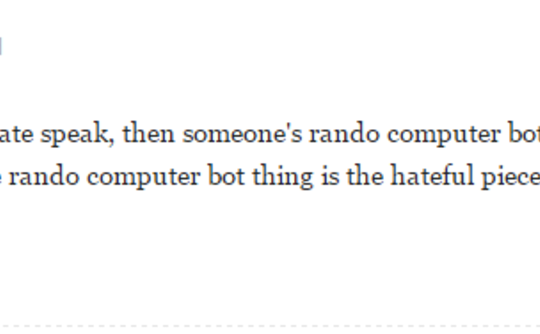Coca-Cola Duped Into Tweeting Racist Content
Pop culture site Gawker built a bot that fed passages from Adolf Hitler's Mein Kampf into the brand's #MakeItHappy tweet generator, which then turned the quotes into cartoon characters.
Pop culture site Gawker built a bot that fed passages from Adolf Hitler's Mein Kampf into the brand's #MakeItHappy tweet generator, which then turned the quotes into cartoon characters.
Coca-Cola has pulled its latest digital marketing campaign after pop culture blog Gawker caused the brand to inadvertently tweet passages from Adolf Hitler’s Mein Kampf.
While Coca-Cola isn’t the first brand to accidentally tweet racist content, it is perhaps the first to have its social media filters tested by a major media organization. The breach in censors highlights the need for strong filters on social, and even more than that, the need for brands to give careful thought to their place in often polarizing social conversations.
In Coca-Cola’s Super Bowl ad, the brand urged users to tag “negative” tweets with #MakeItHappy. The brand then used an automated system to edit the negative tweets into cartoonish pictures made of ASCII code and retweet them.
The campaign was originally intended to take a stand against cyber-bullying, according to Coca-Cola.
“Many of us have seen or felt the effects of online negativity, and it’s a concern that only continues to grow within society,” said Andy McMillin, vice president and general manager of Coca-Cola Trademark Brands in a prepared statement before the Super Bowl. “Advertising during the Big Game broadcast offers a huge opportunity to drive awareness around the topic and, more important, to encourage people to be more positive in their online actions.”
Gawker, however, took issue with what the site saw as hypocrisy on Coca-Cola’s part for taking a serious, and sometimes deadly, issue like cyber-bullying and trying to cover it with a cartoonish mask. In an article posted yesterday, Gawker editor-in-chief Max Read called Coca-Cola’s Twitter campaign a “stunt” and justified Gawker’s actions by inferring Coca-Cola’s implicit consent in the posting of the racist tweets.
“It’s true — we asked Coca-Cola to tweet about its concern for the continuing existence of the white race,” wrote Read. “But this is not particularly different from asking for a retweet from a brand or a celebrity. If we asked Coca-Cola to retweet, for example, the first four paragraphs of Hitler’s autobiography Mein Kampf, would it?”
Gawker then proceeded to make a bot that tweeted passages from Mein Kampf and tagged them #MakeItHappy. Coca-Cola’s own tweet generator turned those tweets into cartoon images.

Coca-Cola responded by removing the tweets and disabling the #MakeItHappy tweet generator. The brand also released the following statement: “The #MakeItHappy message is simple: The Internet is what we make it, and we hoped to inspire people to make it a more positive place. It’s unfortunate that Gawker is trying to turn this campaign into something that it isn’t. Building a bot that attempts to spread hate through #MakeItHappy is a perfect example of the pervasive online negativity Coca-Cola wanted to address with this campaign.”
What Coca-Cola’s statement fails to address and Gawker’s move highlights is that the company essentially set up a tweet generator to animate online harassment and then proceeded to ignore it, inviting this type of snafu and highlighting the disingenuousness of its message.
But Gawker is also not blameless, as the site’s own readers are quick to point out, calling out the blog for both perpetuating racism and creating an artificially racist environment.

What do you think? Was Gawker right to showcase the Coca-Cola campaign’s flaws? Or did they create an unnecessarily racist situation? Leave your thoughts in the comments below.
Homepage image via Shutterstock.